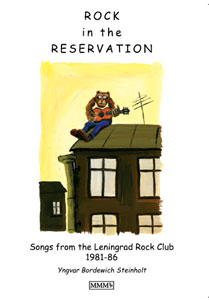Call for Papers: 2008 Pop Conference at Experience Music Project
Hi! Please forward this call to writers and musicians not part of IASPM: as
a gathering dedicated to bringing together people from the widest possible
range of backgrounds, we rely on your help. Email me if there are any
questions. Many thanks, Eric
Shake, Rattle: Music, Conflict, and Change
April 10-13, 2008, Seattle, Washington
How does music resist, negate, struggle? Can pop music intensify
vital confrontations, as well as ameliorating and concealing them? What
happens when people are angry and silly love songs aren’t enough? The
migrations and global flows of peoples and cultures; the imbalanced
struggles between groups, classes, and nations: what has music’s role been
in these ongoing dramas? We invite presentations on any era, sound, or
geographic region. Topics might include:
–In conjunction with the new EMP exhibit, American Sabor:
Latinos in U.S. Popular Music, how Latino musics have shaped the American
soundscape and challenge black and white rock-pop paradigms, or more
broadly, the unsettling effects of immigration, internal migration,
displacement, assimilation, and colonization.
–How music enters politics: social movements and activist
responses to crises such as New Orleans; entertainment’s connection to
ideology and propaganda; music within “cultural policy” and as part of the
public sphere; debates over copyright, corporate power, and cultural
democracy; performing dissent
–Social and musical fragmentation: segregation and
constructions of whiteness, divisions of class and gender, versus musical
categorization and niche marketing, from big genres to smaller forms such as
“freak folk”
–“Revolution” as a recurrent theme in popular music, a social
or technological reality it confronts, or an association with particular
genres and decades of music.
–Clashes between communal, local, identity — tradition,
faith, nativism — and cosmopolitan, global, modernization
–Music in times of war, economic crisis, adolescence, and other
intense stress
–Agents of change: tipping points, latent historical shifts,
carnivalesque subversions, and accidents or failures of consequence
–The sound of combative pop: what sets it apart?
Send proposals to Eric Weisbard at EricW@empsfm.org by December 17, 2007;
please keep them to 250 words and a 50 word bio. Full panel proposals,
bilingual submissions, and unusual approaches are welcome. For questions,
contact the organizer or program committee members: Joshua Clover (UC
Davis), Kandia Crazy Horse (editor, Rip it Up: The Black Experience in Rock
‘n’ Roll ), Simon Frith (University of Edinburgh) Holly George-Warren
(author, Public Cowboy No. 1: The Life and Times of Gene Autry), Michelle
Habell-Pallan (University of Washington), Michele Myers (KEXP), Ann Powers
(LA Times), Joe Schloss (NYU), RJ Smith (Los Angeles magazine), Ned Sublette
(author, Cuba and its Music), and Sam Vance (EMP).
The Pop Conference at EMP, now in its seventh year, joins academics,
critics, writers of all kinds, and performers in a rare common discussion.
Our second collection, Listen Again: A Momentary History of Pop Music, will
be published by Duke University Press in November: email Laura Sell
(Lsell@dukeupress.edu) for a review copy. The conference is sponsored by the
Seattle Partnership for American Popular Music (Experience Music Project,
the University of Washington School of Music, and KEXP 90.3 FM), through a
grant from the Allen Foundation for Music. For more, go to
http://www.empsfm.org/education/index.asp?categoryID=26


